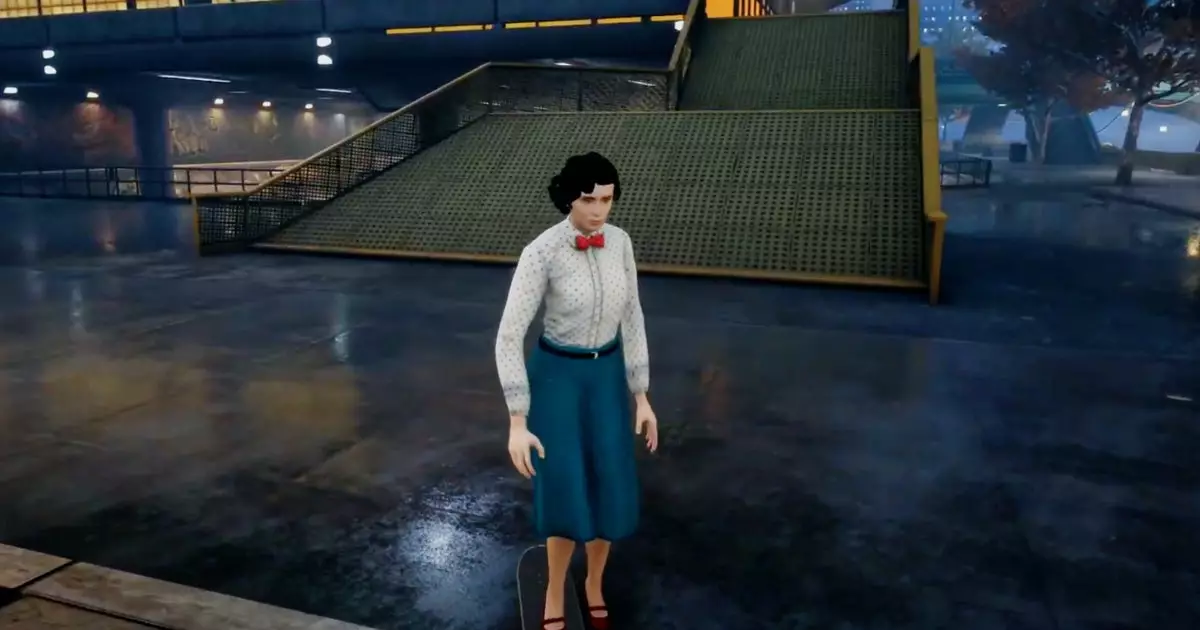The recent release of Tony Hawk’s Pro Skater 3+4 marks more than just a continuation of a beloved franchise; it signifies a cultural renaissance fueled by nostalgia and creativity. For decades, these games have served as both a gateway and a tribute to skateboarding culture, blending technical skill with rebellious spirit. However, what truly propels this latest iteration beyond its predecessors is the community’s enthusiastic embrace of modding. The burgeoning custom content landscape transforms what was once a static experience into a colorful playground of imagination, breaking free from the constraints of original design. This phenomenon reflects a broader trend: passionate fans don’t just consume entertainment—they reinvent it, shaping the narrative, aesthetics, and even the characters to suit their unique visions.
The pre-release access allowed savvy players and modders to jumpstart their creative engines earlier than usual. This early engagement amplifies the game’s cultural footprint and underscores the increasingly interactive nature of modern gaming. Instead of passively absorbing content, gamers now participate in its evolution, exemplifying a democratization of game design. The modders, led by figures like Huckleberrypie, act as digital artisans, crafting eccentric and compelling character swaps—from iconic figures like Tommy Angelo and Tony Soprano to fantastical reinterpretations like Elsa from Frozen or even absurd mashups such as Snow White in a mafia setting. These creative experiments reveal a certain audacious humor and heartfelt homage, elevating the game’s community from mere players to active contributors of a shared cultural tapestry.
The Quirky Creativity of Character Skins: More Than Just Visual Surprises
Among the myriad modifications flooding Nexus Mods, one stand-out initiative vividly demonstrates how personalization transforms gameplay into storytelling. The Mary Poppins mod created by Huckleberrypie is emblematic of this phenomenon. By replacing original characters with Mary Poppins from the 2018 film, the mod ventures beyond surface-level aesthetics into playful narrative territory. The backstory—Mary returning from the magical world of the Banks family to help a family in distress—adds layers of whimsy and nostalgia, blurring the lines between fantasy and fandom. This isn’t just a costume swap; it’s an imaginative reinterpretation that invites players to see skateboarding through an entirely different lens.
More than a mere visual gag, the Mary Poppins mod symbolizes how fans can recontextualize characters within different genres or histories, creating a hybrid universe where the boundaries of reality are fluid. As gamers experiment with these creative modding efforts, they forge a deeper personal connection with the game, transforming it from a static product into a canvas for storytelling. This kind of innovation underscores how a collaborative community can breathe new life into aging titles, ensuring their relevance and appeal remain fresh and exciting well beyond their original release.
Revitalizing Classics Through Community-Driven Innovation
Beyond character skins, the scope of mods enriches the game in some truly inventive ways. Practical enhancements like custom restarts, free-roam cameras, and streamlined startup options improve user experience while empowering players with more control. The inclusion of experimental mods like Master Chief riding a mini-tank exemplifies how absurdity and ingenuity go hand-in-hand, offering a humorous yet empowering twist on the skateboarding paradigm. The community’s ongoing efforts demonstrate that the boundaries of what can be achieved are limitless when collective passion meets technological opportunity.
Critically, this modding culture exemplifies a democratization of game creation, where passionate fans become their own developers, pushing the envelope of what is possible. The rapid evolution of user-generated content creates a fertile environment for continuous innovation, ensuring that players remain engaged long after the initial release. It also questions traditional notions of game ownership and control—are these titles truly finished, or are they just a starting point for a collaborative artistic journey?
The release of Tony Hawk’s Pro Skater 3+4, bolstered by a vibrant modding community, highlights a fundamental shift in how we perceive video games. No longer are they static products; they are dynamic platforms for personal expression, cultural commentary, and humor. The creativity displayed—from absurd character swaps to practical gameplay enhancements—embodies a collective desire to remold gaming into an individualized art form rooted in nostalgia but bursting with innovative spirit. As fans continue to shape and expand these experiences, it’s clear: the true power of modern gaming lies in community-driven evolution, transforming shared passions into lasting cultural artifacts, one radical skateboard trick at a time.


Leave a Reply